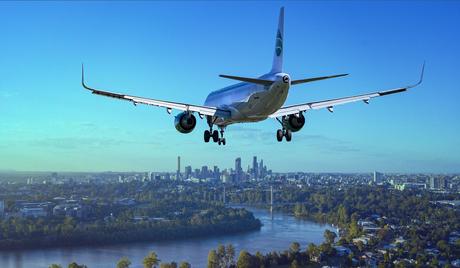
The coronavirus pandemic will cost the UK $1.5 billion in travel and tourism jobs and cause billions of dollars in economic damage to the country as the industry collapses. The impact of the COVID-19 pandemic in 2026 first appeared in the American news hour. Nearly three million jobs will be lost in Britain as a result of flat-rate travel advice, according to a new report.
GlobalData predicts that UK inbound tourists will fall by about 35% compared to 2019 due to the impact of COVID-19. At this scale, the tourism industry will lead to a large number of job losses worldwide. The financial losses are calculated by the World Travel and Tourism Council (WTTC), which estimates that the number of tourists visiting the UK will fall significantly by 2020. WT TC estimates that by 2026, we could lose a staggering $186 billion a year with the loss of 3.5 million travel and tourism jobs and a decline in tourism spending of about $1.2 billion.
The impact of the extended travel restrictions could kill more than 1.5 million jobs in the UK travel and tourism industry, a 73 percent drop from 2019. By 2020, 2.9 million jobs could be lost and by 2026, we could lose a total of 1.9 million jobs through COVID-19.
In total, 1.6 million jobs could be lost, almost twice as many in the worst-case scenario. While the best scenarios would undoubtedly still deliver a devastating blow to travel and tourism, this outcome prevents the loss of more than half a million British jobs that might otherwise have been lost and protects the jobs of those who might otherwise have lost them.
The diversity of impacts and reactions will make COVID's impact on travel and tourism more complex than ever. How new rules and relationships will deal with this remains to be seen, but the variety of impacts and reactions will be made up of a variety of factors, such as the nature of the new regulation, its impact on the travel sector, and other factors.
If there are changes preventing the UK from recruiting foreign nationals, including those from outside the EU, the travel and hospitality industries will be hit hard. This is because we have many thousands of seasonal and permanent workers who have been recruited from EU countries to work in the UK tourism sectors. The threat of job losses from these countries will put a brake on demand for leisure travel, and thus affect tourism in the UK. Chinese tourists spend an average of £1,700 per visit in 2018, and although the US, Canada, Australia, New Zealand, and South Africa have not yet banned entry to the UK, this is likely to have a significant impact on certain regions and businesses.
Together with a reduced willingness to travel to these regions, these restrictions have negative economic effects on the travel sector, both in terms of travel costs and travel time and tourism.
For countries dependent on travel and tourism, the COVID 19 pandemic has had a serious and lasting impact on the overall economy. The tourism and hospitality sectors are the worst affected, with the sector most affected by the ongoing coronavirus pandemics. While all sectors of the global economy are affected by coronavirus outbreaks, the hotel, leisure, retail and travel sectors are also affected more than any other sector in terms of travel costs, travel time, tourism time or travel costs. In the UK, but also in other countries such as France, Germany, Italy, Spain, and the United States, our tourism sector was hit hardest, resulting in global travel restrictions.
The WTTC analysis shows that the travel and tourism sector contributes 9% to UK GDP and 11% of total employment in the UK. Industry leaders in the European Union estimate that travel and tourism account for more than half of Britain's GDP. Among other things: The WTTC 2020 Economic Impact Report highlights that tourism, leisure, retail, hospitality, and travel, as well as the hotel and leisure sector, supported over 2.5 million jobs in the UK in 2019. Meanwhile, 11.2 million British jobs, or say 11,000 a day, are supported by a sector that, according to the World Travel & Tourism Council, brought nearly £200 billion of GDP into the UK economy in 2015, and another 1.7 million in 2016, by 2019.
Some of the companies impacted by Covid, include British Airways, TUI Airways, and Hays travel.
Operating outside the EU would increase costs for the travel industry, but this would largely depend on what deal the industry would strike and how easily it could adapt to new regulations. Travel industry consultants continue to forecast higher costs for key travel components in the UK, including hotels, restaurants, hotels, travel, and hospitality, as well as airlines, airlines, and hotels.
The best scenario would be for the government to follow the WTTC's recommended four-point plan. This will depend on the impact of the UK's withdrawal from the EU and the implementation of new EU rules and must be lifted in the event of a no-deal with the European Union (EU) government.
